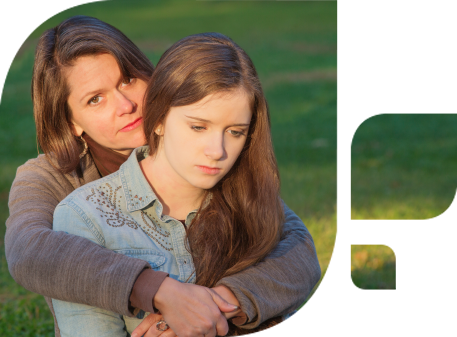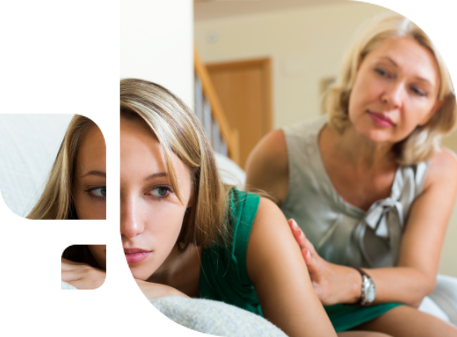Concerned for someone?
If you are, you may well have said:
‘It’s my fault’; ‘I feel so helpless’; ‘I don’t know what to do’
‘I am so worried’ ‘We can’t talk anymore’ ‘I know anorexia exists, but why don’t they just eat?’ ‘Where can I find help?’

It happened to me
Our daughter was hospitalised because her potassium count was so low that her heart was in danger of failing. Thankfully, her nurse friend recognised the symptoms (loss of feeling in her neck, chest, hands and arms). Unbeknown to us, she had been throwing up constantly, but had no idea she was so ill. She didn’t really admit her behaviour to herself. That’s how eating disorders are.

So once she was pumped full of potassium and stabilised, we brought her home and tried to keep her alive. We had some help from the local NHS eating disorder unit, but soon discovered that there is no quick fix. A good friend sat with her until she was ready to talk, loved her as she was, and had her overnight to give us a break. Our church community was also enormously supportive.
Our lovely daughter took a while to recover. It was immensely hard work for her and for us. But she has done it. She had to unwind the reasons that eating disorder began, and find resolution to some of those things. She had to create a new, better relationship with food and eating. We had some helpful family therapy together. She is now married and expecting a baby. As a family, we haven’t fallen to bits. There is always hope.
Survival
These are the things we learned through that unbearable time:
- Recovery is possible. Find out more about recovery here
- It’s better to try and understand than shout or cry
- Eating disorders are mean and cruel; in contrast, family and friends need to be kind and loving
- Eating disorders lie all the time, so it’s important to speak the truth
- Family and friends need help too, so value those relationships that bring restoration and take a rain check on those that drain you
- Unconditional love and acceptance of the sufferer is vital
- It’s not all your fault
- Keep talking to each other
- There is always hope

 Has my family member or friend got an eating disorder?
Has my family member or friend got an eating disorder?
Our page on possible signs may give you a clue. Eating disorders happen to boys and men too, and cases amongst men is actually the fastest growing statistic in the UK. Eating disorders happen to all ages as well, despite often beginning in the teenage years.
How should I react?
For some ideas, see Can I recover? and Supporting recovery
Order a copy of Do’s and Don’ts for Carers here.
Find a tastelife course
‘It’s just wonderful to have someone to be with who has been down the same path that we are now on. I’m not quite sure where we would be without the group at this point in time.’
– Parent at a tastelife course
The tastelife course was created by two mums who have been through eating disorders in their families. It has as much in it for parents, friends and family as it does for sufferers. Come with or without the person you are concerned about. Find a course here.

